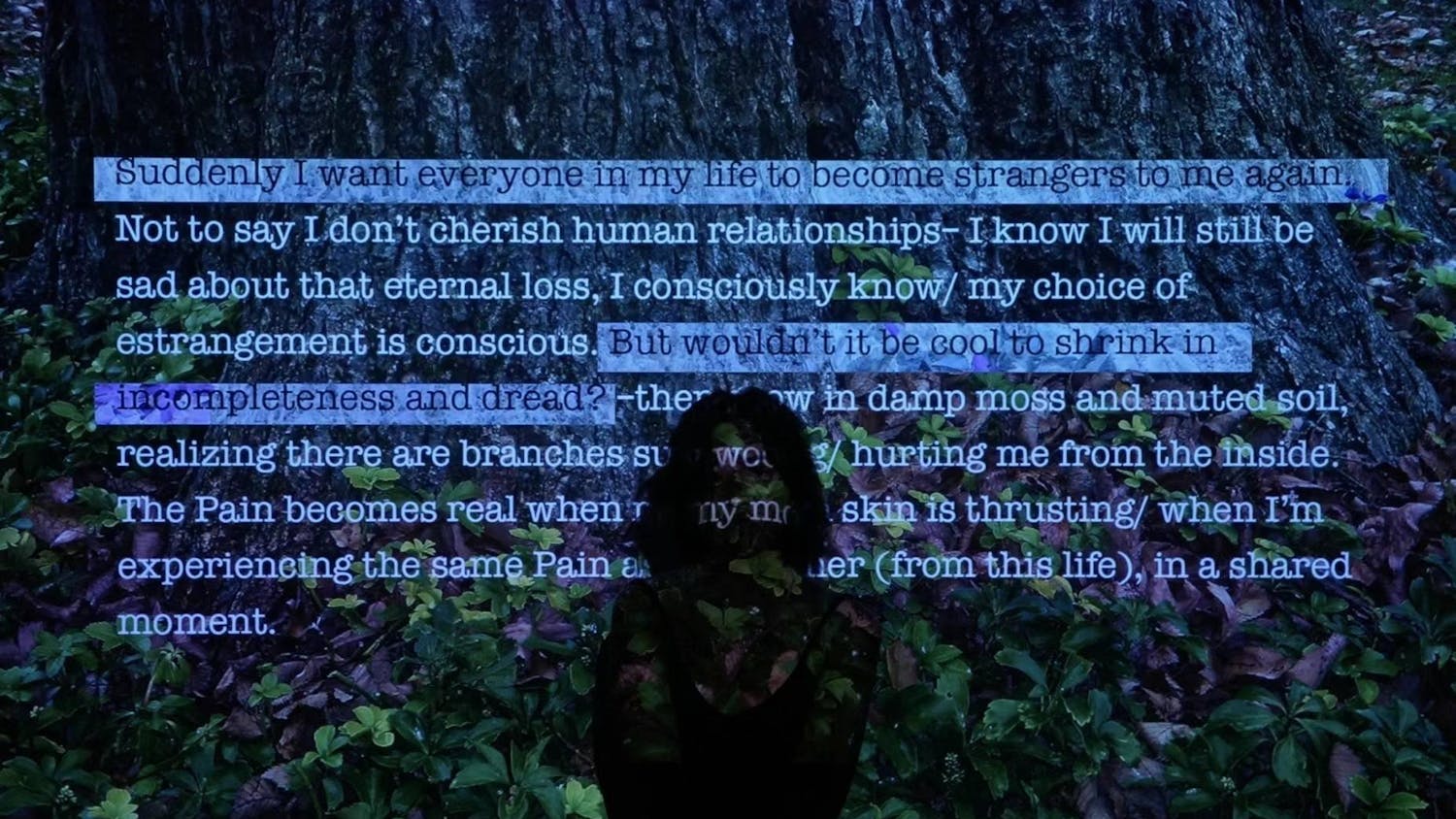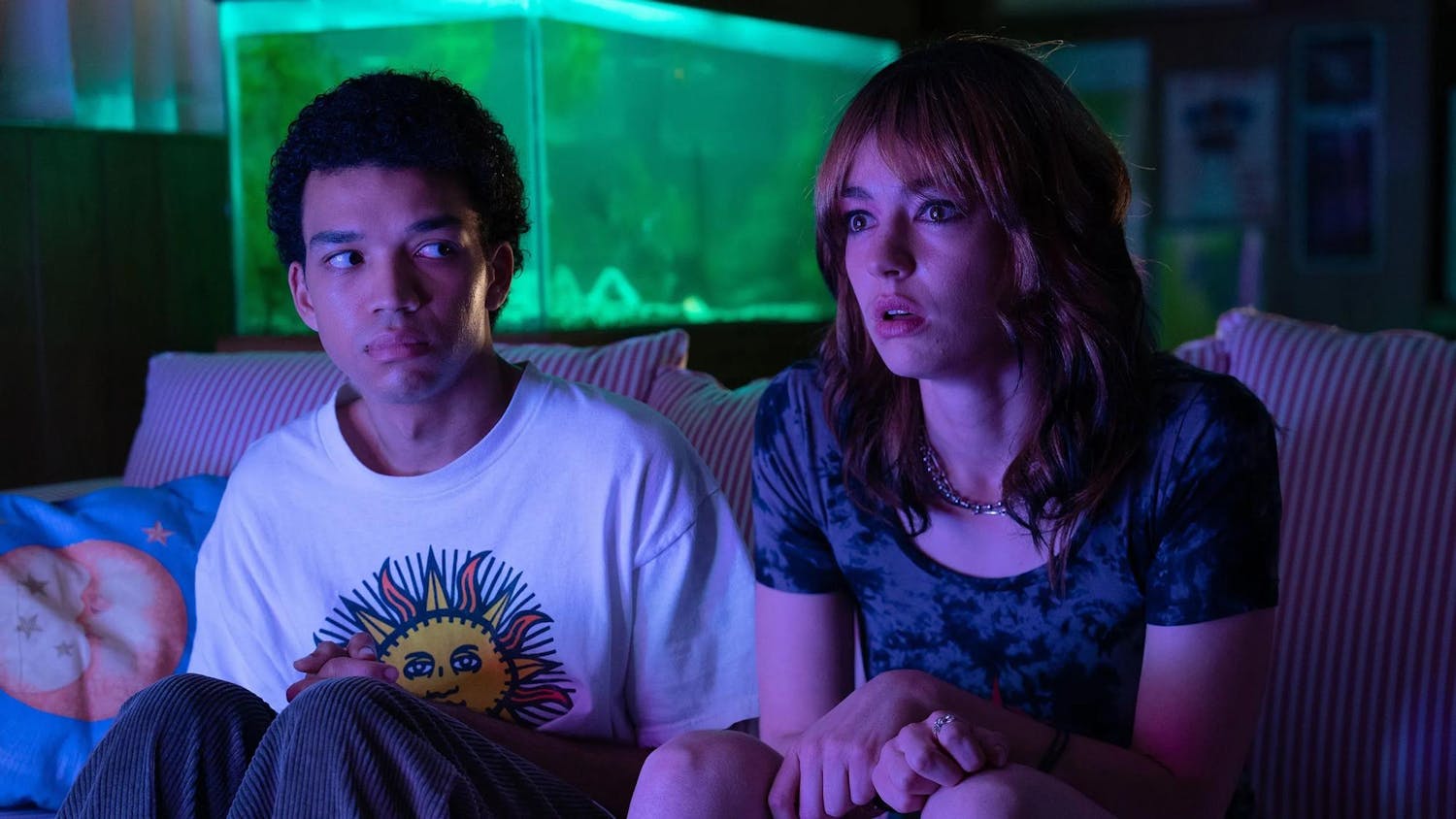Fanny Howe advocated for racial equality in the 1960s. She draws inspiration from philosophers of the early 20th century. But “Second Childhood,” the newest poetry collection by the visiting lecturer in literary arts, is anything but dated.
Howe, who read from her works with novelist Bradford Morrow Thursday in the McCormack Family Theater, has written more than 20 books of poetry, fiction and essays and has received a host of accolades from organizations like the National Endowment for the Arts and the Guggenheim Foundation.
Earlier this month, “Second Childhood” was named a National Book Award finalist.
“It’s just great, great news that this work would be recognized,” Department Chair and Professor of Literary Arts Cole Swensen told The Herald. “Often, the major literary awards in this country are kept to fairly conservative works — works that are easy to understand, works that don’t challenge language itself in the way that Fanny’s does.”
In “Second Childhood,” Howe said she seeks to explore the question of what the future holds, both personally and globally.
In the book, Howe approaches aging as a second childhood, exploring the value of a youthful perspective. She portrays the world as inhabited by a “kind of necessity, a usefulness,” which, for her, is inseparable from the divine, Howe said.
She also meditates on “how we construct a world” in the changing global landscape through her poetry, she said. “I’m just sort of following the herd in that sense and trying to be a little optimistic about the Internet.”
“She’s very straightforward,” Swensen said. “She has no fear about looking silly, not being able to address the issue she raises: What is it to be an adult? What’s so great about that?”
But within this frankness, she added, Howe begins to venture “beyond where language can take us.”
Howe’s technical prowess with language has struck members of Brown’s faculty throughout her career. Assistant Director of Literary Arts Gale Nelson said he remembers attending “a stunningly good reading” of Howe’s work in the late ’70s, and when he read Howe’s poetry collection “The Vineyard,” he was compelled by her ability to “render a location with elegance.” He added, “Her control of language was particularly powerful.”
“I love the fact that she’s at times explicit and at times really oblique so that we get this glance at faith and daily life,” Swensen said. “Her ability to take her work beyond where language usually goes is a very difficult thing for a poet to do, and she manages it with a real grace.”
Howe said teaching her course LITR 1151B: “Figures of Thought” gave her an opportunity to reflect on the books, ideas and influential figures that were formative to her development as a writer.
Among these influences is Simone Weil, an early 20th-century French philosopher. Like Weil, Howe’s work is concerned with ethical quandaries and the divine as it inhabits the world. Howe also worked for the Congress of Racial Equality throughout the 1960s — her writing and life are inextricably linked with both political and spiritual issues, she said.
“I was terribly caught up in the atmosphere of the 20th century, all of the wars and all of the racism and violence, and when 2000 came around, I thought, ‘This has got to stop. I can’t go on brooding like this.’ But then I did for another 10 years,” she said. Her writing reflects these preoccupations, she added.
For Swensen, Howe’s work across genres grapples meaningfully with these questions of faith and social justice. “Her poetry focuses more overall in relationship with (the) individual, his or her grappling with faith, grappling with mysteries of life,” she said.
The invitation to teach at Brown was an unforeseen but well-timed turn of events, said Howe, who is at Brown for the semester.
“I told (University of Massachusetts Boston) that I was never going to teach again and said goodbye to them, and then Cole (Swensen) called,” Howe said. “It was like a gift from heaven.”
“The most important thing is that it provides a safe place to be insane,” she said of her poetry. This is the atmosphere she tries to cultivate in the classroom, where she teaches an “eccentric” curriculum that instigates conversations about “enormous existential ideas,” she said.
She has her students write by hand during class due to a fear that the physical act of writing will eventually be replaced by an overreliance on technology. Howe said she carries pens and notebooks with her at all times, but still anticipates an inevitable loss of the physical medium.
Her ability to unflinchingly confront greater issues is a strength that comes through in her poetry, Swensen said, adding that while much poetry attempts to reach a neat conclusion about an issue, “Fanny’s work refuses to do that. It leaves us at the edge of language, at the edge of these questions without the false security.”
“It makes us able to look at the unanswerable without a disconcerted feeling,” she added.
ADVERTISEMENT




